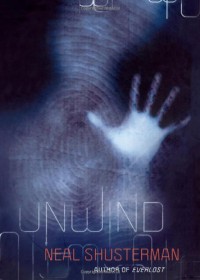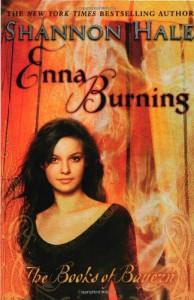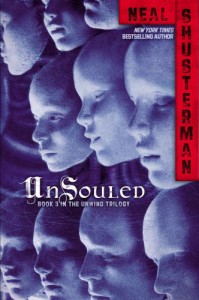
Well, it's official. Shusterman is obsessed with death. Or perhaps more accurately, with our social, systematic, and personal relationships with death.
It's crazy reading through his backlist having been introduced to his work through Scythe, because so many of the same ideas that he's developed so wonderfully in the Arc of a Scythe series pop up in his earlier work.
The Unwind Dystology uses the two camps of abortion activists as a jumping off point to develop a dystopian future where both have lost and population control is dealt with by harvesting unwanted teens for their organs. There is some exploration of the perspectives on abortion and what it says about human beliefs and human nature, including: unwanted babies are a burden on society, no one can prove when (or if) a soul exists in a human, adults are frequently irresponsible and want to be freed of the consequences of their actions, teens are a hassle to deal with, organ harvesting is big business, it sucks how much women have to take on, everyone wants to not be the last one left holding the bag. But really, what this first book, at least, leaves you with is not an argument for one camp or the other (women's rights vs. infant rights), but rather that humans are mostly trash.
I mean, that makes it sound more depressing than it is as a read. It's fast-paced and entertaining, with well-developed characters and oodles of conflict. I basically read it in a sitting (hello 3 am, my old friend!) But what comes out clearly is that no one wants to deal with nasty chores and the burden of being responsible for someone else. There's the time adults in a community passed around an unwanted baby in a weeks-long game of "hot potato" until it died of neglect. There are the parents who went nuts with having kids and adopting unwanted babies, ultimately to decide to "tithe" the 10th one as a human sacrifice out of some twisted interpretation of their religion. There's the young teen mother who abandons her infant on a doorstep, assuming the wealthy family there will be better able to care for it. There are the parents of teens who, for various reasons, choose to give up troublemakers and disappointments. There's the state, which harvests orphanage kids to finance raising the younger ones. We're told that the demand for organ donation is so high because the adults en masse are more comfortable with kids being "unwound" to parts than they are signing organ donation cards in the event of their own death.
So basically, people treat people like trash most of the time. And teens are the least likely to get any sympathy. And most of our bad behaviour comes down to economic reasons, comfort, and convenience.
There are heroes, of course. The troublemaking teen who escapes, channels his anger and discontentment into leadership and rescues others. The father who tries to make up for the sacrifice of his own son to save others. The "underground railroad" that works to save fleeing kids because they still believe in something besides convenience and passing the buck. The brainwashed religious (cult) kid who learns his own life and the lives of others have value after all. But those heroes are few - greatly outnumbered by the careless masses.
And the series continues. Maybe there's hope for the rest of humanity. Maybe if they're forced to confront the ugly reality of the cost of their normalcy, they'll choose to sacrifice something of their own, and not just tap off kids to sacrifice for them. Or maybe not. Maybe they'll just shift the blame once more to a population without the power to protect themselves. The unborn. The elderly. The damaged. Another nation. Another skin colour. Another religion. Because without something big enough to believe in and convince us to sacrifice our comfort and convenience, most of us subside into willfull ignorance. But hey, idk, maybe that's not where the series is headed. After all, fiction is all about the escapist happy endings, right?



 2
2























